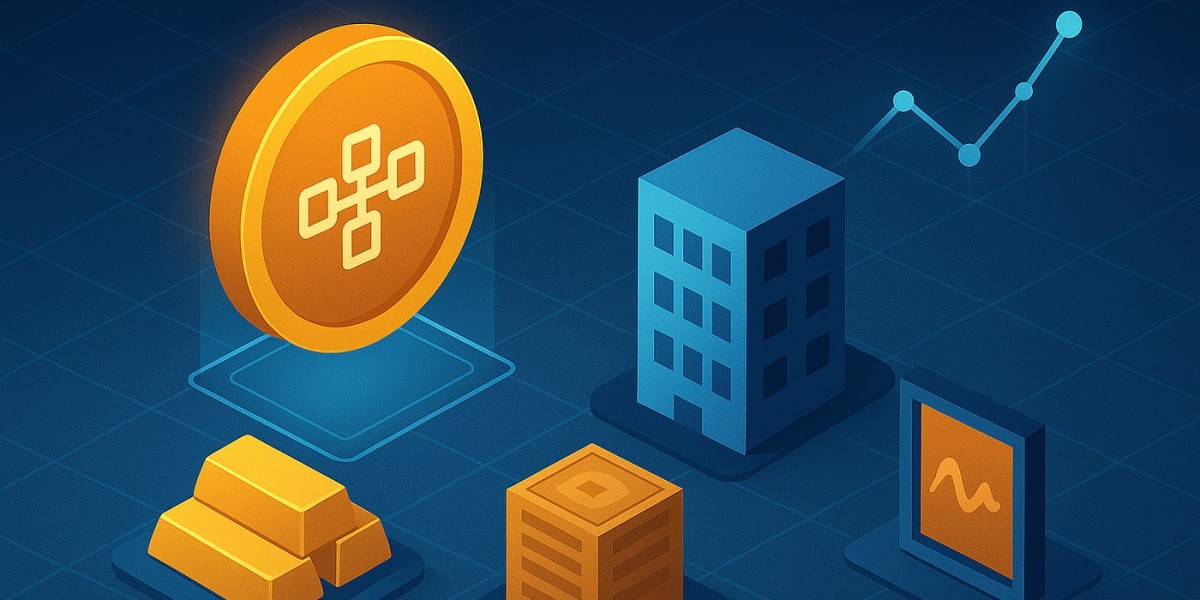The world of digital finance has grown at a remarkable pace, with blockchain technology creating opportunities for individuals and businesses to innovate in areas previously restricted to centralized institutions. One of the core innovations in this space is the development of cryptocurrencies and tokens. These digital assets are powered not just by blockchain but also by two essential components: smart contracts and tokenomics. Understanding these elements is crucial for anyone looking to enter the world of crypto token development, whether as a developer, investor, or business exploring blockchain solutions.
Understanding Smart Contracts
Smart contracts are self-executing agreements written in code that run on a blockchain. They automate the enforcement of rules and conditions without the need for intermediaries. In essence, smart contracts function as digital contracts that can manage transactions, enforce agreements, and even trigger actions based on predefined conditions.
For crypto token development, smart contracts are indispensable. They define the token's functionality, including how it can be transferred, how supply can be adjusted, and how ownership is verified. For instance, popular token standards like ERC-20 for Ethereum rely on smart contracts to define core properties such as total supply, transfer rules, and balance tracking. Without a well-coded smart contract, tokens can become vulnerable to exploitation, leading to loss of funds or misuse.
The security and reliability of smart contracts are also vital. Code errors or oversights can have severe consequences. Several high-profile incidents have shown that even minor vulnerabilities can be exploited for millions of dollars. Therefore, when working with a token development company, thorough auditing and testing of smart contracts are non-negotiable. Ensuring accuracy, transparency, and security in smart contracts forms the foundation for a successful token launch.
The Role of Tokenomics
While smart contracts define the operational aspects of a token, tokenomics deals with the economic structure and incentives surrounding it. Tokenomics is essentially the study and design of the token's economic system, including supply, distribution, utility, and governance.
A strong tokenomics model ensures that tokens have value, utility, and sustainability over time. It answers fundamental questions such as: How many tokens will exist? How will they be distributed? What incentives exist for holders? These factors are critical because they influence adoption, liquidity, and the long-term success of the token.
In practical terms, tokenomics involves defining the total supply of a token, deciding if there will be a fixed or inflationary supply, and planning distribution strategies. For example, some tokens reserve a portion for developers, some for early investors, and others for community incentives. The allocation plan can determine whether a token gains trust and engagement or struggles to achieve market traction.
Utility and Governance in Tokens
Tokens serve different purposes, and understanding their utility is a key part of tokenomics. Some tokens are designed as currency within a network, others as governance tools allowing holders to vote on protocol changes, and some as reward mechanisms for network participants. Clear utility strengthens the demand for a token and encourages adoption.
Governance is another essential aspect. Tokens that provide governance rights allow holders to participate in decision-making, enhancing transparency and decentralization. Effective governance mechanisms can prevent centralization of power and align community interests with the project's long-term goals. Poorly designed governance, on the other hand, can lead to conflicts, manipulation, and even project failure.
Integrating Smart Contracts and Tokenomics
The true power of a token is realized when smart contracts and tokenomics work in harmony. Smart contracts enforce the rules laid out in the tokenomics model, ensuring that the economic principles designed for the token are maintained automatically. For example, if a tokenomics model includes staking rewards or burn mechanisms, smart contracts can automate these functions without human intervention.
Automation reduces errors, prevents fraud, and builds trust among token holders. It also makes the system scalable, allowing the network to handle increasing participants and transactions efficiently. A token development company that understands both smart contracts and tokenomics can create tokens that are functional, economically viable, and secure.
Security Considerations in Token Development
Security remains a top priority in crypto token development. Even with well-designed tokenomics and smart contracts, a token can fail if security is compromised. Vulnerabilities can arise from poorly written code, flawed logic, or inadequate testing.
Comprehensive audits and code reviews are standard practices in the industry. These processes identify weaknesses and ensure that smart contracts behave as intended under all conditions. Penetration testing and simulation of attack scenarios can further strengthen security. For any business planning to issue tokens, investing in these measures is critical to safeguard both the project and its users.
Moreover, security is not limited to smart contracts. The broader ecosystem, including wallets, exchanges, and user interfaces, must be secure to maintain the integrity of the token. A token development company that addresses end-to-end security considerations is better positioned to deliver tokens that users can trust.
Real-World Applications of Tokens
Tokens are no longer limited to speculative trading. They are now being used in various sectors, from finance to supply chain management, gaming, and digital identity verification. Utility tokens enable decentralized applications to function by providing access to services or resources. Governance tokens empower communities to participate in decision-making. Security tokens represent real-world assets, offering regulatory-compliant investment opportunities.
Understanding the intended application of a token is vital in designing both its smart contracts and tokenomics. The structure must align with the token's purpose, whether it is incentivizing user behavior, representing value, or facilitating governance. Tokens that fail to align design with purpose often struggle with adoption and long-term sustainability.
Choosing the Right Token Development Company
For businesses and developers looking to enter the market, selecting the right token development company is a critical step. A competent company not only provides technical expertise in coding smart contracts but also offers strategic guidance on tokenomics, security, and deployment.
Working with experienced developers can accelerate the token development process while minimizing risks. They can help define token standards, implement governance frameworks, and design incentive mechanisms tailored to the project's objectives. Additionally, professional token development companies provide ongoing support, ensuring that updates and improvements can be implemented as the ecosystem evolves.
Future Trends in Token Development
The field of crypto token development is evolving rapidly. Emerging trends include the integration of artificial intelligence to optimize tokenomics models, the use of multi-chain smart contracts to increase interoperability, and the development of advanced governance mechanisms for decentralized autonomous organizations (DAOs).
Another trend is the focus on sustainability. Token projects are increasingly being designed with environmental considerations in mind, optimizing energy use and adopting more eco-friendly blockchain networks. These developments suggest that successful tokens in the future will not only rely on sound smart contracts and tokenomics but also adapt to broader societal expectations.
Conclusion
The development of successful tokens depends on a deep understanding of both smart contracts and tokenomics. Smart contracts provide the technical foundation, ensuring that tokens function securely and reliably. Tokenomics defines the economic and incentive structures that drive adoption, value, and sustainability. Together, they form the blueprint for tokens that can thrive in the digital economy.
For anyone considering crypto token development, partnering with a reliable token development company is essential. Their expertise ensures that every aspect of the token, from code to economics, is carefully planned and executed. With careful design, robust security, and clear utility, tokens can achieve their intended impact, enabling innovation across industries and opening new opportunities for businesses and communities alike.
By focusing on these key elements, the journey from concept to successful token can be navigated with confidence, resulting in a digital asset that is functional, economic sound, and prepared for the challenges and opportunities of the blockchain era.








